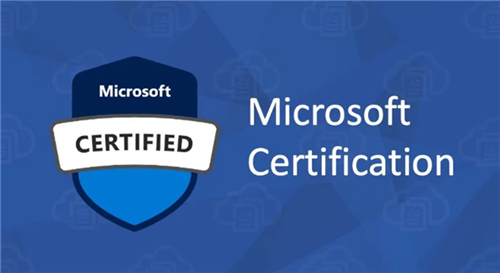
In today's technology-driven world, mobile applications have become a cornerstone of everyday life, facilitating communication, entertainment, promoting business, shopping, and even learning[AK1] . With over 6 billion smartphone users globally, the demand for mobile app development continues to soar. Consequently, many aspiring developers are turning to mobile application development courses to equip themselves with the necessary skills to thrive in this competitive field.
In the age of digital technology, mobile applications have become a vital part of our daily lives. Consequently, mobile application development is experiencing rapid growth. Professionals looking to excel in this domain can benefit from a comprehensive Mobile App Development training and certification program.
Skills You Will Gain from a Mobile Application Development Course
This blog explores the essential skills you will gain from a mobile application development course, providing insight into how these skills can enhance your career prospects.
1. Understanding of Programming Languages
One of the foundational skills you will acquire in a mobile application development course is proficiency in programming languages. Different platforms utilize various languages, and understanding these is crucial for building robust applications.
Key Programming Languages:
- Java: Widely used for Android app development, Java is an object-oriented language known for its versatility and ease of use.
- Swift: As Apple's preferred language for iOS app development, Swift is essential for creating high-performance applications on the iPhone and iPad.
- Kotlin: This modern language is increasingly being adopted for Android development due to its concise syntax and enhanced features over Java.
- JavaScript: Particularly useful for cross-platform development, JavaScript can be employed in conjunction with frameworks like React Native and Flutter.
Why It Matters
Mastering these programming languages provides you with the technical foundation necessary to create functional, user-friendly apps. This knowledge also opens the door to numerous job opportunities, as many employers seek developers proficient in specific languages.
2. Familiarity with Development Frameworks
A significant part of mobile app development involves utilizing frameworks that simplify the coding process. Courses often cover various frameworks, enabling students to build applications more efficiently.
Popular Development Frameworks:
- React Native: A JavaScript framework that allows developers to create cross-platform apps using a single codebase.
- Flutter: Developed by Google, Flutter enables developers to craft natively compiled applications for mobile, web, and desktop from a single codebase.
- Xamarin: A Microsoft-owned framework that uses C# and .NET, Xamarin is particularly beneficial for developers familiar with the Microsoft ecosystem.
Why It Matters
Learning to work with these frameworks enhances your productivity and efficiency. By leveraging existing tools, you can reduce development time while ensuring that the application remains robust and scalable. It enables developers to write a single codebase that works across both iOS and Android. This reduces development time, effort, and costs, as developers don't need to maintain separate codebases for each platform.
3. User Interface (UI) and User Experience (UX) Design Skills
A successful mobile application is not just about functionality; it also requires an appealing design and seamless user experience. Many mobile application development courses emphasize UI and UX design principles.
Key Concepts:
- UI Design: Understanding how to create intuitive interfaces that users find easy to navigate.
- UX Research: Learning how to gather and analyze user feedback to improve the app's overall experience.
- Prototyping and Wireframing: Utilizing tools like Figma or Adobe XD to visualize the app’s design before development.
Why It Matters
Incorporating strong UI and UX design principles can significantly impact user satisfaction and retention. A well-designed app is more likely to receive positive reviews and achieve a larger user base, which is essential for any app’s success.
4. Backend Development Skills
While front-end development focuses on the user interface, backend development handles the server-side logic that powers mobile applications. Many courses provide insights into backend technologies, enabling developers to create fully functional applications.
Key Backend Technologies:
- APIs (Application Programming Interfaces): Understanding how to create and interact with APIs is crucial for enabling communication between the app and servers.
- Databases: Learning about database management systems like MySQL, PostgreSQL, or NoSQL options such as MongoDB helps in managing app data effectively.
- Server Management: Gaining knowledge of server technologies, such as Node.js or Ruby on Rails, allows you to handle data processing and user requests efficiently.
Why It Matters
Having backend development skills makes you a more versatile developer, allowing you to build complete applications independently. This proficiency can be a significant advantage in job interviews and lead to higher-paying positions.
5. Debugging and Testing Skills
Debugging and testing are critical components of the development process. A mobile application development course will teach you how to identify and fix issues within your code, as well as how to conduct thorough testing.
Key Techniques:
- Unit Testing: Testing individual components of your code to ensure they function as expected.
- UI Testing: UI testing ensures that all user interactions, such as clicks, text inputs, function as expected. This is especially important for validating critical user flows like login, registration, and navigation through the app.
- Integration Testing: Assessing how different components of the application work together.
- User Acceptance Testing (UAT): Gathering feedback from end users to identify potential improvements.
Why It Matters
Being adept at debugging and testing helps in delivering high-quality applications. Developers who can efficiently troubleshoot and resolve issues are more valuable to employers and can significantly impact project timelines and success rates.
6. Knowledge of Mobile App Monetization Strategies
Understanding how to monetize a mobile application is crucial for developers looking to launch their products in the market. Many courses cover various monetization strategies, including:
- In-app Purchases: Allowing users to buy virtual goods or premium features.
- Subscription Models: Offering users ongoing access to premium content for a recurring fee.
- Ad Monetization: Integrating ads into the application to generate revenue.
Why It Matters
Having knowledge of monetization strategies enables you to develop applications that can generate revenue, making you a more attractive candidate to potential employers or investors.
7. Adaptability to New Technologies
The tech landscape is continually evolving, and staying updated with the latest trends and technologies is vital for any developer. A mobile application development course fosters an adaptable mindset, encouraging students to embrace continuous learning.
Why It Matters
The ability to quickly learn and adapt to new technologies can set you apart in a competitive job market. Employers value candidates who are proactive about upgrading their skills and keeping pace with industry changes.
Conclusion
A mobile application development course offers a wealth of knowledge and skills essential for launching a successful career in tech. From mastering programming languages and development frameworks to understanding UI/UX, the skills gained from such a course are invaluable in today’s job market. Whether you're looking to become a freelance developer, join a tech company, or launch your own app, the competencies acquired through a mobile application development course will serve as a solid foundation for your career. By investing in your education and honing these skills, you'll be well-equipped to thrive in the ever-evolving world of mobile technology.
Koenig Solutions, a leading IT training company, offers a comprehensive Mobile Application Development Course that equips you with the skills needed to build innovative and efficient mobile applications. With expert instructors and a well-designed curriculum, you can gain practical knowledge and hands-on experience to excel in the field of mobile app development.



.jpgM.jpg)



COMMENT